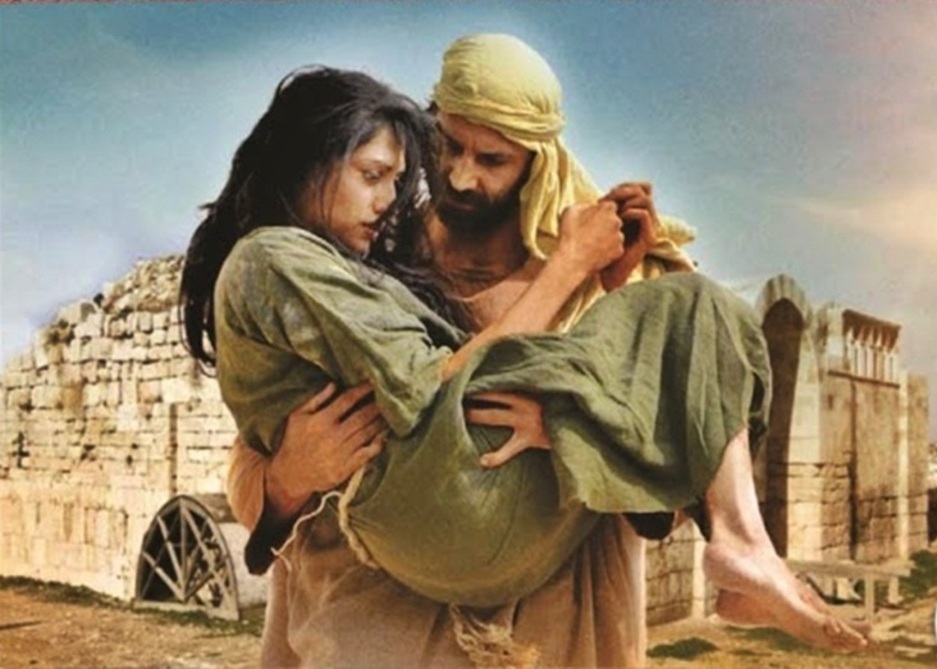To accompany your Come Follow Me study for November 7-13
In addition to reading the indicated chapters, you may wish to:
- Read the applicable portions of the Old Testament Institute Student Manual at https://abn.churchofjesuschrist.org/study/manual/old-testament-student-manual-kings-malachi/chapter-10?lang=eng and https://abn.churchofjesuschrist.org/study/manual/old-testament-student-manual-kings-malachi/chapter-7?lang=eng
- Watch the video Come Follow Me (Nov 7-13) – Hosea & Joel | Minor Prophets, Major Teachings at Come Follow Me (Nov 7-13) – Hosea & Joel | Minor Prophets, Major Teachings – YouTube
- Watch the video Overview: Hosea at https://www.youtube.com/watch?v=kE6SZ1ogOVU
- Watch the full movie Amazing Love: The Story of Hosea (2012) at https://www.youtube.com/watch?v=A7wHoafxLUY
- See the video Overview: Joel at https://www.youtube.com/watch?v=zQLazbgz90c
If you would like a Kahoot game related to this material which you could use for personal study or use with your family or your class, click here: https://create.kahoot.it/share/hosea-1-6-10-14-joel/94d89889-3376-48d7-9036-4b62d546a633. (To use it with a group, after clicking on this link, you will need to log into Kahoot, creating a free account if you have not done so previously, then click on the blue “Start” button.)
Points to Ponder in Hosea 1-6, 10-14; Joel
1. The book of Hosea is the first of twelve Old Testament books written by the so-called Minor Prophets. Why do you suppose they are called “minor”? What lesson is there in this for us?
2. Did the Lord really ask Hosea to marry a prostitute? Why would He do that, when today we are encouraged to marry someone worthy of entering the temple? Or this just an allegory of some sort? Why do you think the way you do?
Hunting in Hosea
Ready for another scriptural “Easter egg hunt”? Find the verse or verses in each indicated chapter of Hosea which teach the specified fact or principle.
3. Chapter 1: Someday the Ten Tribes and the kingdom of Judah will merge and become one political entity.
4. Chapter 2: Passage which may explain why there are no Book of Mormon names compounded from a very common Biblical name.
5. Chapter 2: Passage quoted by Paul in Romans 9:25-26 to explain the adoption of the Gentiles into the House of Israel.
6. Chapter 3: The Lord may impose a period of probation on sinners, requiring passage of a certain period of time, in connection with repentance, before certain blessings may be enjoyed.
7. Chapter 4: What passage is most likely to be quoted on an Institute of Religion class schedule someday?
8. Chapter 4: The priests of Hosea’s day had personal reasons for wanting the people to sin.
9. Chapter 4: People tend to be much like their leaders—or leaders tend to be much like the people of their time.
10. Chapter 4: There is a relationship between adultery and idolatry. Those who have no religious commitments are less likely to keep their marital commitments.
11. Chapter 5: The Lord may abandon His people for a time to encourage them to change their ways.
12. Chapter 6: Repeats the message of 1 Samuel 15:22—Religion should be a matter of the heart rather than the mere performance of outward rituals.
13. Chapter 11: Passage believed by the apostle Matthew to have a dual application, including a prophecy of an event in the life of Christ.
14. Chapter 13: Hosea teaches the reality of the resurrection.
15. Chapter 14: Smart people are religious.
The Book of Joel
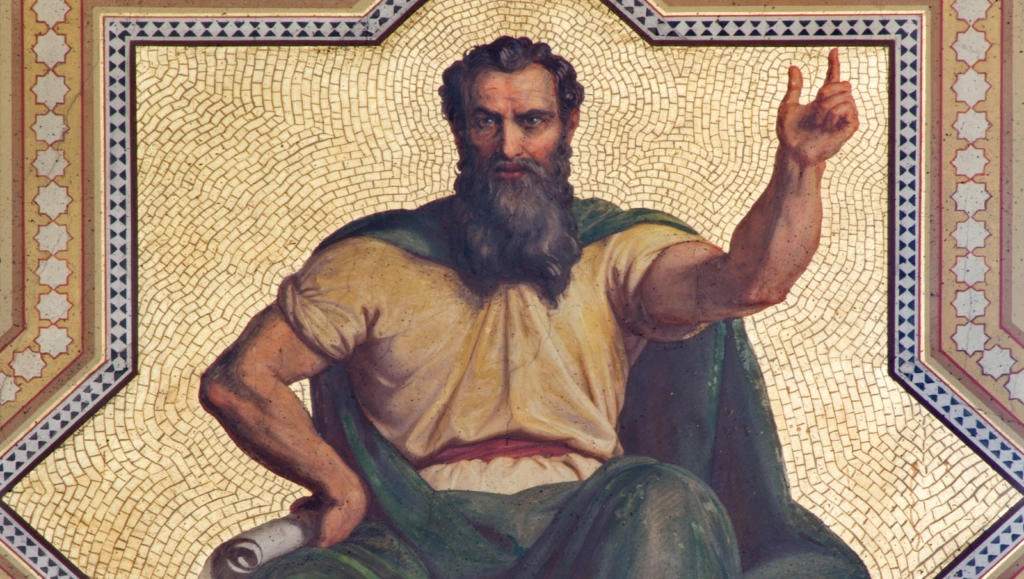
- What passage from the Book of Joel is probably most-often quoted by Latter-day Saints? Why is it such a great missionary passage?
- What passage from Joel did Moroni quote to Joseph Smith the night of September 21, 1823? Why do you think he quoted it?
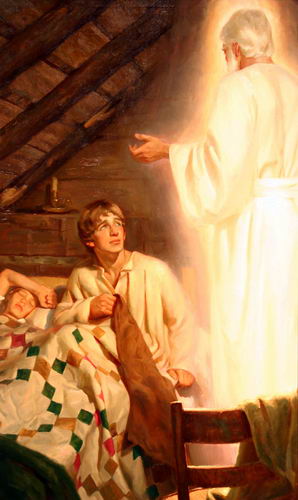
- What else did Joel contribute to our understanding of the last days and signs of the times?
- What other passage(s) in Joel did you consider especially worthy of marking?
Possible Answers to Points to Ponder in Hosea 1-6, 10-14; Joel
1. The book of Hosea is the first of twelve Old Testament books written by the so-called Minor Prophets. Why do you suppose they are called “minor”? What lesson is there in this for us?
They are called “Minor Prophets” only because they left less written material for us, not because they were less important than the “Major Prophets.” One implication is that if we don’t want our posterity to consider us “minor ancestors,” we may want to leave a significant amount in writing for them!
2. Did the Lord really ask Hosea to marry a prostitute? Why would He do that, when today we are encouraged to marry someone worthy of entering the temple? Or this just an allegory of some sort? Why do you think the way you do?
Your choice. Good people differ on this question. My own opinion, supported by the Anchor Bible and the Expositor’s Bible Commentary, is that Gomer was not a prostitute when Hosea first married her, but became so later. If so, the great message of the story is that Hosea’s willingness to accept her back, at the Lord’s command, is a symbol of the Lord’s own willingness to forgive His wayward children, provided they will repent and return to Him.
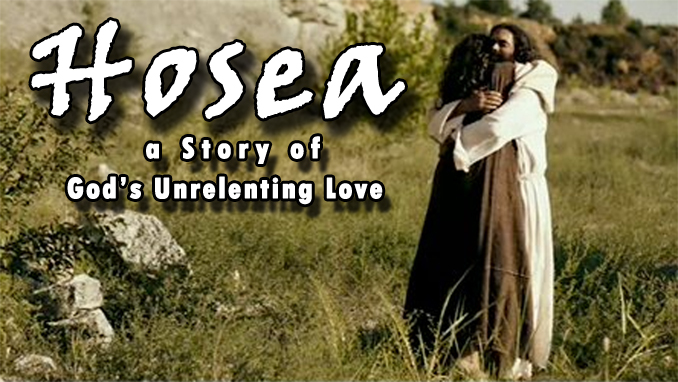
3. Chapter 1: Someday the Ten Tribes and the kingdom of Judah will merge and become one political entity.
1:11
4. Chapter 2: Passage which may explain why there are no Book of Mormon names compounded from a very common Biblical name.
The Lord says in 2:17, “I will take away the names of Baalim out of her mouth.” See https://www.fairlatterdaysaints.org/blog/2014/08/28/faith-and-reason-18-names-in-the-book-of-mormon. Here, the author, Michael Ash, says, “For a time, Mormon scholars were confused as to why the Book of Mormon does not include a single name containing the element of Baal, which is so common in the Old Testament. The recent discovery of the Elephantine papyrus from Egypt shows that Israelites eliminated all names with Baal elements during Lehi’s day. Of the over four hundred names among the Elephantine manuscripts, not one is compounded of Baal.”
5. Chapter 2: Passage quoted by Paul in Romans 9:25-26 to explain the adoption of the Gentiles into the House of Israel.
2:23
6. Chapter 3: The Lord may impose a period of probation on sinners, requiring passage of a certain period of time, in connection with repentance, before certain blessings may be enjoyed.
In 3:3-5, Hosea tells Gomer, “Thou shalt abide for me many days.” The Institute Student Manual comments: “Even though the purchase price mentioned in Hosea 3:2 has been paid, there is a time of testing, of waiting and preparing, before one is reinstated to all the blessings of the covenant and enjoys the company of a husband and a savior. This principle is valid whether applied to Gomer as a person or to Gomer as a figure for Israel.” Similarly, where serious transgression is involved today, a bishop or membership council may impose a period of waiting before even a repentant transgressor may once again partake of the sacrament or enter the temple.
7. Chapter 4: What passage is most likely to be quoted on an Institute of Religion class schedule someday?
I would nominate 4:6: “My people are destroyed for lack of knowledge.”
8. Chapter 4: The priests of Hosea’s day had personal reasons for wanting the people to sin.
4:8: “They eat up the sin of my people, and they set their heart on their iniquity.” The Institute Student Manual explains: “Keil and Delitzsch explained that the Hebrew phrase translated as the “sin of my people” referred to “the sin-offering of the people, the flesh of which the priests were commanded to eat, to wipe away the sin of the people (see [Leviticus 6:26], and the remarks upon this law at [Leviticus 10:17]). The fulfillment of this command, however, became a sin on the part of the priests, from the fact that they directed their soul, i.e. their longing desire, to the transgression of the people; in other words, that they wished the sins of the people to be increased, in order that they might receive a good supply of sacrificial meat to eat.” (Commentary, 10:1:78–79.)
9. Chapter 4: People tend to be much like their leaders—or leaders tend to be much like the people of their time.
4:9: “Like people, like priest.”
10. Chapter 4: There is a relationship between adultery and idolatry. Those who have no religious commitments are less likely to keep their marital commitments.
This seems to be the major message of this entire chapter—especially verses 11-18.
11. Chapter 5: The Lord may abandon His people for a time to encourage them to change their ways.
5:15
12. Chapter 6: Repeats the message of 1 Samuel 15:22—Religion should be a matter of the heart rather than the mere performance of outward rituals.
6:6
13. Chapter 11: Passage believed by the apostle Matthew to have a dual application, including a prophecy of an event in the life of Christ.
11:1: In speaking through Hosea, the Lord was probably referring to the Exodus under Moses, but Matthew applied it to Jesus’ sojourn in Egypt to escape Herod’s wrath.
14. Chapter 13: Hosea teaches the reality of the resurrection.
13:14. The Lord’s immediate meaning here may be that He will bring back Israel from its “dead” state of apostasy and captivity, but the passage seems also to confirm the reality of the resurrection. It is unlikely the Lord would have used a false doctrine as a metaphor for His plans for His people.
15. Chapter 14: Smart people are religious.
14:9
The Book of Joel
16. What passage from the Book of Joel is probably most-often quoted by Latter-day Saints? Why is it such a great missionary passage?
It is almost certainly 2:28-29. In a day when so many Christian denominations teach that there are no more prophets to be expected, and that Joseph Smith’s story could not be true, Joel tells us specifically that in the latter days God would pour out His spirit upon all flesh, that our sons and daughters would prophecy, and that young men would see visions. Who is a better candidate for a literal fulfillment of that prophecy than the 14-year-old Joseph Smith?
17. What passage from Joel did Moroni quote to Joseph Smith the night of September 21, 1823? Why do you think he quoted it?
Moroni quoted this same passage from Joel 2, but included verses 28-32. No doubt it was to help Joseph Smith realize that ancient prophets had foreseen his mission and to help him understand that he was to participate in the great preparation for the return of the Lord Jesus Christ.
18. What else did Joel contribute to our understanding of the last days and signs of the times?
Most significantly, he taught:
- 1:15: The “day of the Lord” would come as a destruction from the Almighty, from the standpoint of the wicked.
- 2:1-2: It would be a day of darkness and gloominess.
- 2:3, 30, 3:2, 12, 14: In a war of Armageddon there would be multitudes assembled to fight against the Lord’s people.
- 2:10, 3:15: The sun, moon, and stars would be darkened.
- 2:11, 32; 3:16: The Lord would come to the aid of His people, who would be victorious.
- 2:23-27; 3:18, 20-21: The Lord would bless His people with temporal and spiritual prosperity in a Millennial day when He would dwell among them.
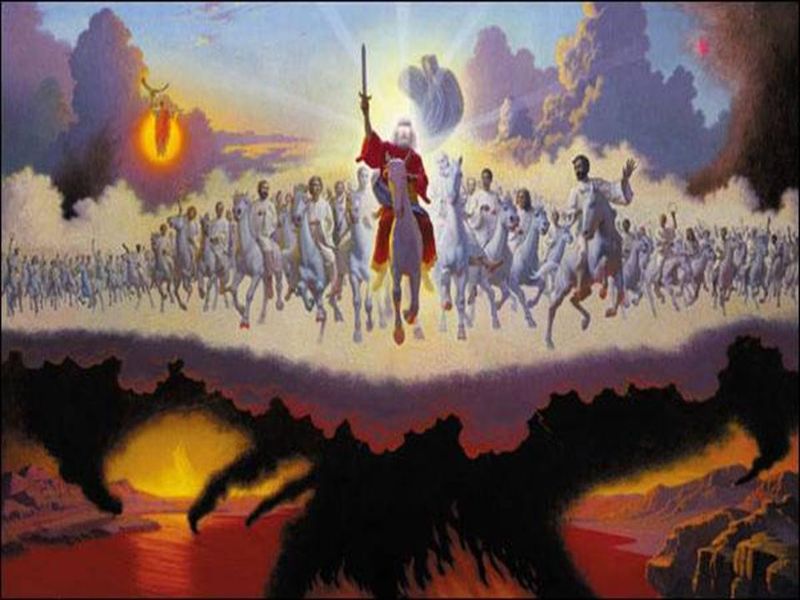
19. What other passage(s) in Joel did you consider especially worthy of marking?
Your choice. I especially liked
- 2:12-13: “Turn … to me with all y our heart, and with fasting, and with weeping, and with mourning: And rend your heart, and not your garments, and turn unto the Lord your God: for he is gracious and merciful, slow to anger, and of great kindness.”
- 2:21: “Fear not, O land; be glad and rejoice: for the Lord will do great things.”
- 2:23: “Be glad then, ye children of Zion, and rejoice in the Lord your God.”
